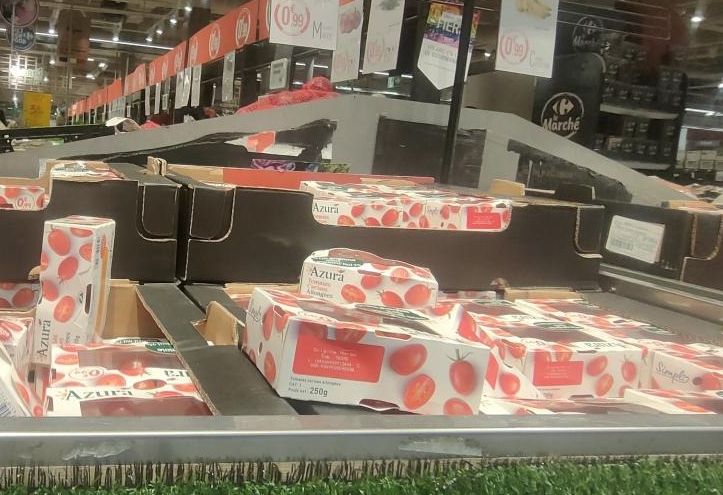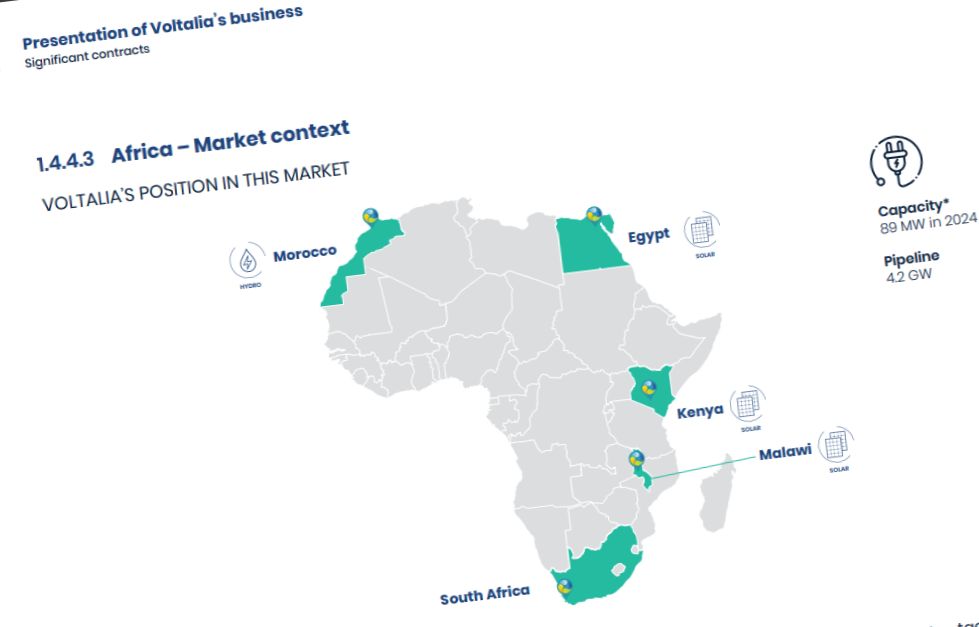
Secret talks in Brussels suggest EU and Moroccan trade representatives may be preparing to bypass international law on Western Sahara.
With less than three months to go before the EU-Morocco trade deal on agricultural and fisheries products is annulled, backdoor negotiations are quietly unfolding in Brussels. Their goal? To find a political workaround to the European Court of Justice (CJEU) rulings that declared such agreements invalid without the consent of the people of Western Sahara.
Most of the territory has been under foreign occupation by Morocco since 1975.
Since the landmark rulings of October 2024, which reaffirmed that Western Sahara is a separate and distinct territory from Morocco and Morocco’s lack of sovereignty or mandate over the territory, legal clarity has been in direct conflict with political and economic pressures, especially from powerful Moroccan agri-exporters and European importers. Now, new revelations from Africa Intelligence show that Moroccan business elites and European officials are testing legal grey zones in order to sustain trade flows from the occupied territory - despite the Court’s decisions.
On 11 June 2025, the General Confederation of Moroccan Enterprises (CGEM) presented a report to María Isabel García Catalán, Head of the Taxation and Customs Union Department of the European Commission, on the "impacts" of the judgment of the Court of Justice of the European Union (CJEU) of October 4, 2024, according to the well-informed news service.
Earlier on, CGEM met with Finnish MEP Pekka Toveri, a member of the European People’s Party, according to Africa Intelligence. The talks were conducted by Abir Lemseffer, the main coordinator of relations between the CGEM and the EU institutions and currently second-in-command of the leading tomato producer in Morocco, Azura, and Sébastien Gubel, a Belgian lawyer and lobbyist who’s on CGEM’s payroll.
Central to these ongoing talks is the concept of “presumed consent”. While the CJEU clearly stated that the consent of the Saharawi people is a condition for legality, the Court explained that consent can be either explicit, or presumed if a set of strict conditions has been met. First, no responsibilities may be imposed on the people of Western Sahara.
And second, the Saharawi people - which is not the same as the population of the territory - must receive a specific, tangible, substantial and verifiable benefit from the exploitation of that territory’s natural resources which is proportional to the degree of that exploitation.
Moroccan and European negotiators appear to be exploiting this legal nuance: that consent could, under certain conditions, be “implicit” if there are concrete benefits for the Saharawi people and no obligations are imposed on them. The conditions laid out by the CJEU seem, however, unlikely to be met, as laid out in WSRW’s article following the ruling. The CJEU rulings are not about redistributing benefits - they are first and foremost about respecting the right to self-determination of the people of Western Sahara. That means that, for instance, the application of presumed consent would require that Morocco would accept the territory of Western Sahara as separate and distinct and that it cannot act in a sovereign capacity in the territory. It is inconceivable Morocco would accept that - in exchange for lower tariffs on produce from Dakhla.
Moroccan agri-giants like Azura, Delassus, and Les Domaines Agricoles (owned by the Moroccan monarchy) are now reportedly proposing financial mechanisms aimed at showcasing such "benefits". According to Africa Intelligence, these may include nominal development projects or indirect funding schemes that extend even to Saharawi refugee camps in Algeria.
Whether these measures could withstand legal scrutiny, however, is uncertain, especially as the Polisario Front, recognized by the EU courts as the legitimate interlocutor for the people of Western Sahara, may still challenge such frameworks.
“EU institutions now face the choice to either uphold the rule of law or facilitate practices that openly defy it. How they proceed may not only be indicative of the EU’s stance on the rights of the people of Western Sahara, but on the integrity of its own judicial system”, says Sara Eyckmans of Western Sahara Resource Watch (WSRW).
Africa Intelligence reported on 4 July that Azura is in the process of reorganizing its corporate structure due to bankruptcy, including in Dakhla, and speculated that the move is aimed at adapting to the new EU trade landscape following the ruling.
WSRW wrote yesterday how the Spanish farmers and a consumer watchdog organisation have filed a complaint with the Spanish consumer authorities about Carrefour’s mislabelling of Azura tomatoes.
Mislabelling Western Sahara products as “Made in Morocco” is not in line with the ruling of a separate CJEU legal case that was issued on the same day as the above-mentioned ruling on the EU-Moroccan trade deal.
In this particular ruling, also of 4 October 2024, the EU Court of Justice, again, concluded that Western Sahara is separate and distinct from Morocco, and is considered a separate customs territory under EU law. Therefore, the court ruled that fisheries and agricultural products from Western Sahara cannot be sold as Moroccan on the EU market.
Labelling products from Western Sahara as "Made in Western Sahara" is, however, considered unthinkable to Moroccan diplomacy. To circumvent this requirement, Rabat and Brussels are considering several alternatives, Africa Intelligence reports.
Earlier this year, African Intelligence revealed that CGEM - with Azura’s money - had paid Danish PR firm Rud Pedersen up to €200,000 to advocate for the company’s EU sales following the CJEU rulings. The contract was negotiated by the same Abir Lemseffer.
Since you're here....
WSRW’s work is being read and used more than ever. We work totally independently and to a large extent voluntarily. Our work takes time, dedication and diligence. But we do it because we believe it matters – and we hope you do too. We look for more monthly donors to support our work. If you'd like to contribute to our work – 3€, 5€, 8€ monthly… what you can spare – the future of WSRW would be much more secure. You can set up a monthly donation to WSRW quickly here.
SRI update
The following overview enlists stock-exchange registered companies with current or recent operations in occupied Western Sahara. Updated 29 July 2025.
Complaint filed: Carrefour “fraudulently” markets conflict tomatoes
Spanish farmers and a consumer rights watchdog have filed a formal complaint with their national consumer authorities, accusing French retailer Carrefour of deceptively marketing Azura-brand tomatoes from Western Sahara as “Moroccan”.
Voltalia hides Western Sahara controversy from reports?
The French renewable company no longer includes its wind farm in occupied Western Sahara in its public financial reporting.
Morocco plans massive AI center in occupied Western Sahara
A 500 MW hyperscale data center for Artificial Intelligence is being envisaged in the occupied territory.


